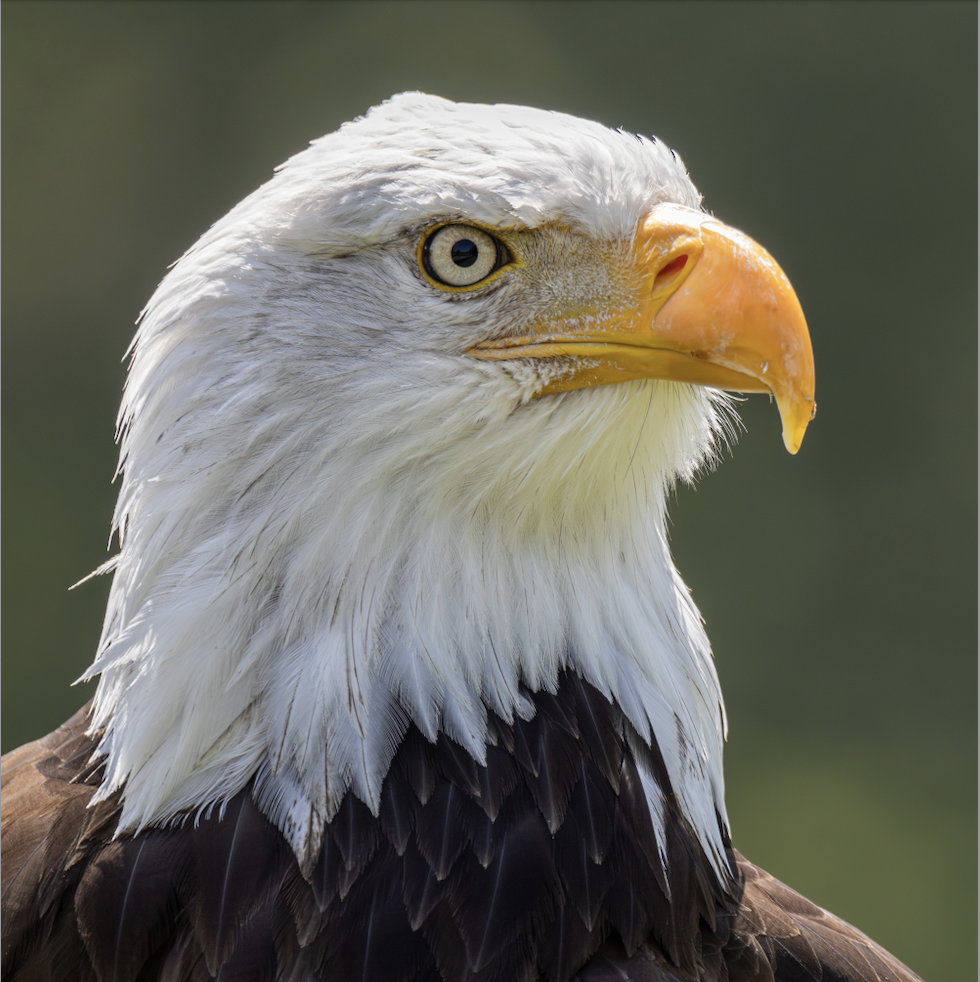A9ii + Tamron 150-500 @ 500mm. No crop this time. I was seated on my porch about 10 feet from the feeder. I truly have no idea how people who take birding more seriously do it.
How they do what?
Get well framed photos, especially of smaller birds away from feeders.
Lots and lots of pictures and observations. No one starts good.
I think my question is one rooted in how close can you actually get, how much reach do you need, and how heavily are you cropping?
From my experience, if you want frame filling tack sharp photos you’re likely pretty close. Does than mean that you observe a good place to station yourself and then spend a decent amount of time for birds to acclimate to your presence? Or is there something else going on?
Professionals may use “hides” but there are also cameras with different optics and higher speed shutters. They also tend to understand a lot better the angles to photograph at.
There’s an article talking about the famous kingfisher photo and the dude was out there taking shots for a few days. For documentaries like BBCs “Planet Earth” they had people in various locations sometimes for weeks-months.
Bear in mind that I’m not a pro and I’m a hobbyist with “entry-level” equipment that I bought more than 10 years ago, even though I started shooting birds the past year or so. I’m commenting to add the perspective of a person who just happens to casually photograph birds on weekends.
I mostly use a Nikon D3200 APS-C with a kit lens (18-200mm), but I’ve had a Sigma 18-300mm and a Tamron 150-600mm in the past.
First thing that might surprise you, I end up with way less keepers than a person with reliable autofocus and good low-light performance.
Second, you do need to get pretty close most of the time, regardless of reach, especially for small birds. Usually, I will take “safer” shots and approach the bird slowly, trying to achieve the frame that I want.
Here’s an example of a “safer shot”, straight out of camera (using the 18-200mm lens):
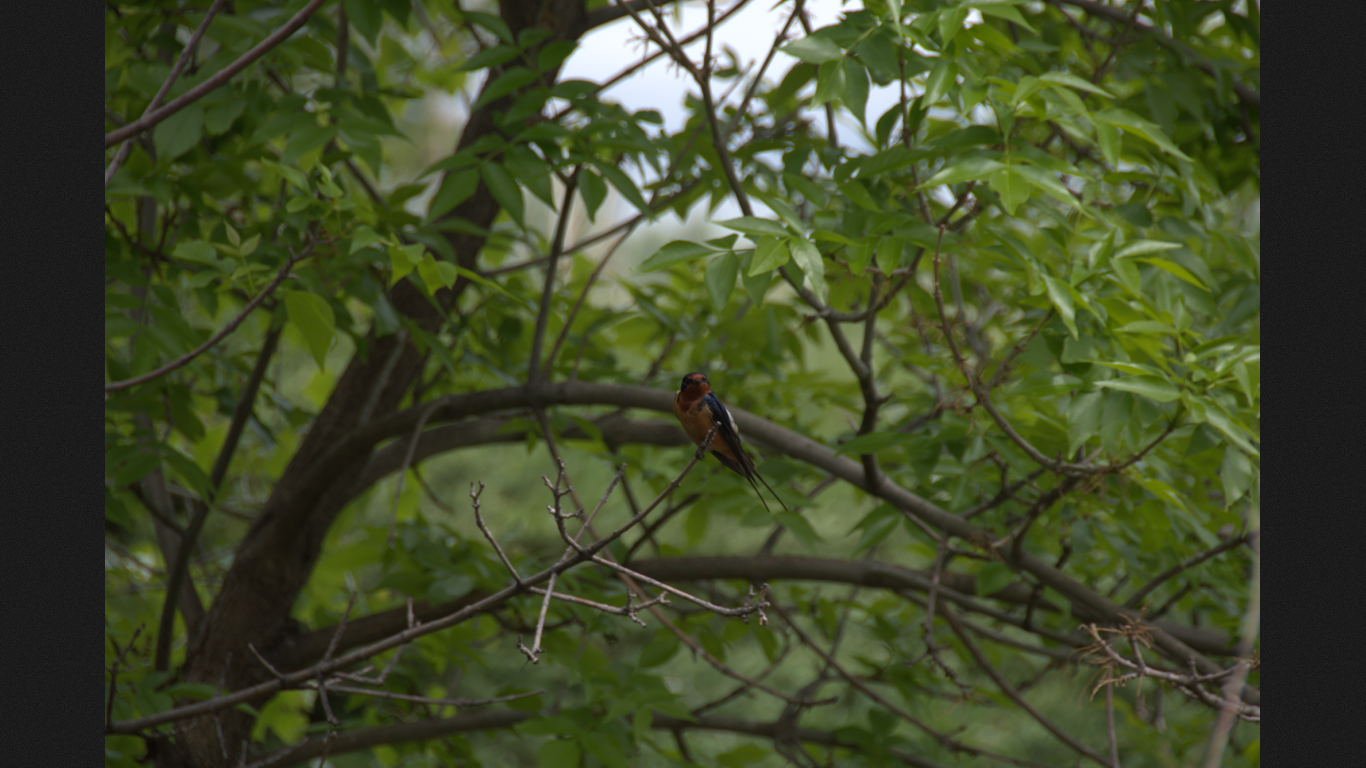
I could walk forward two more steps to improve framing, before I was limited by a creek in front of me,
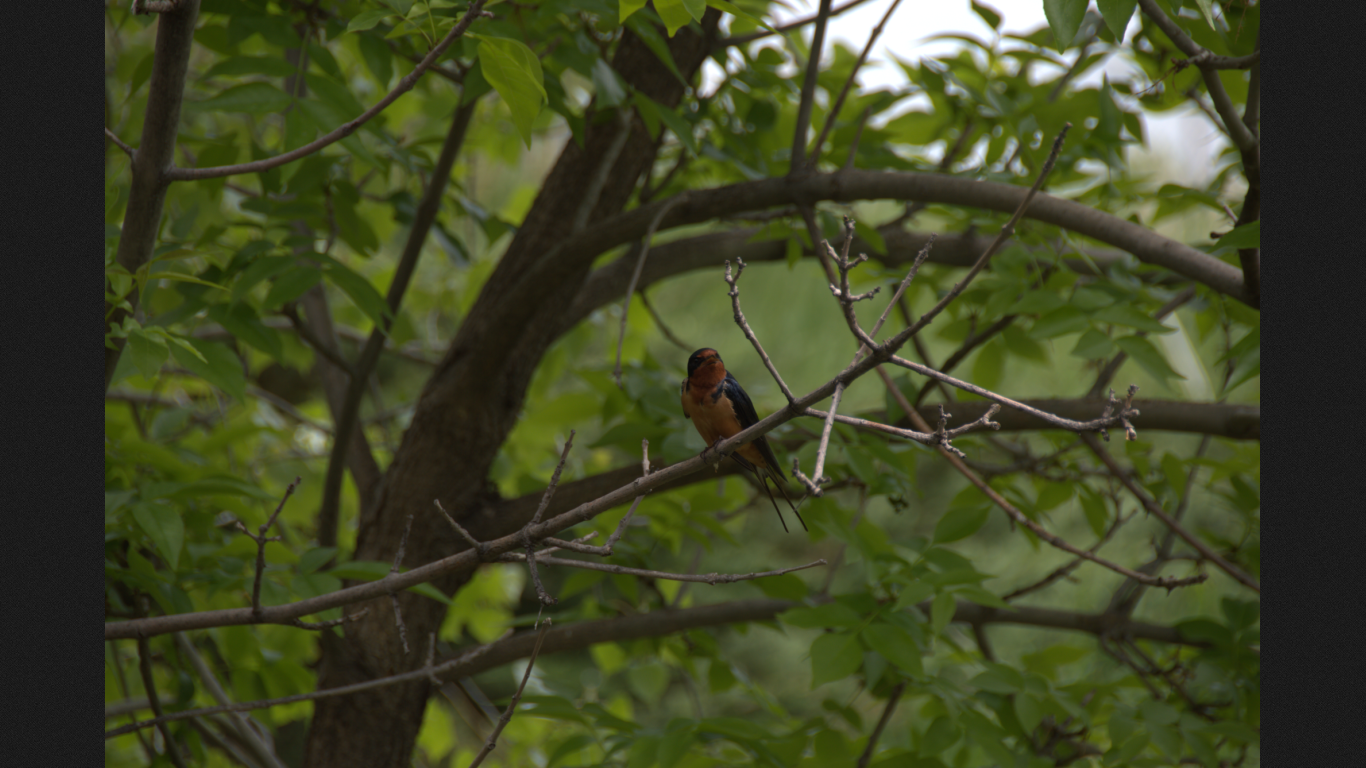
The final shot, illustrating how much I usually crop
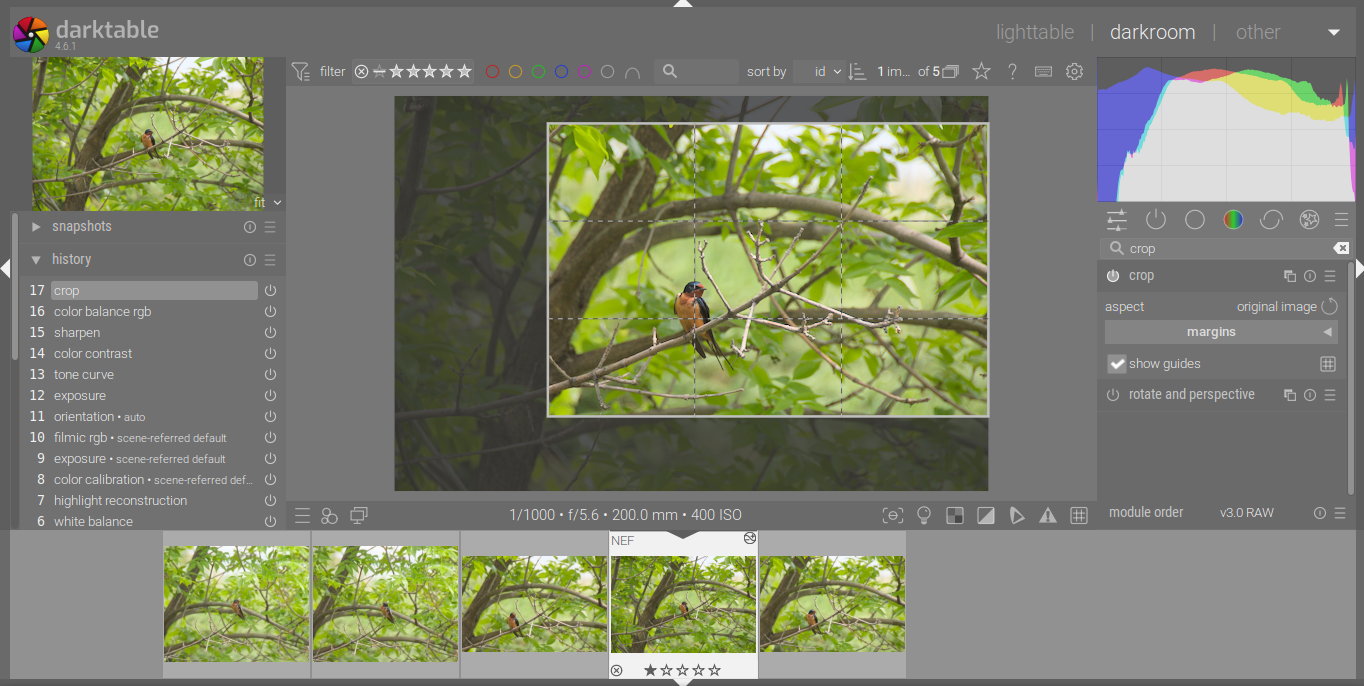
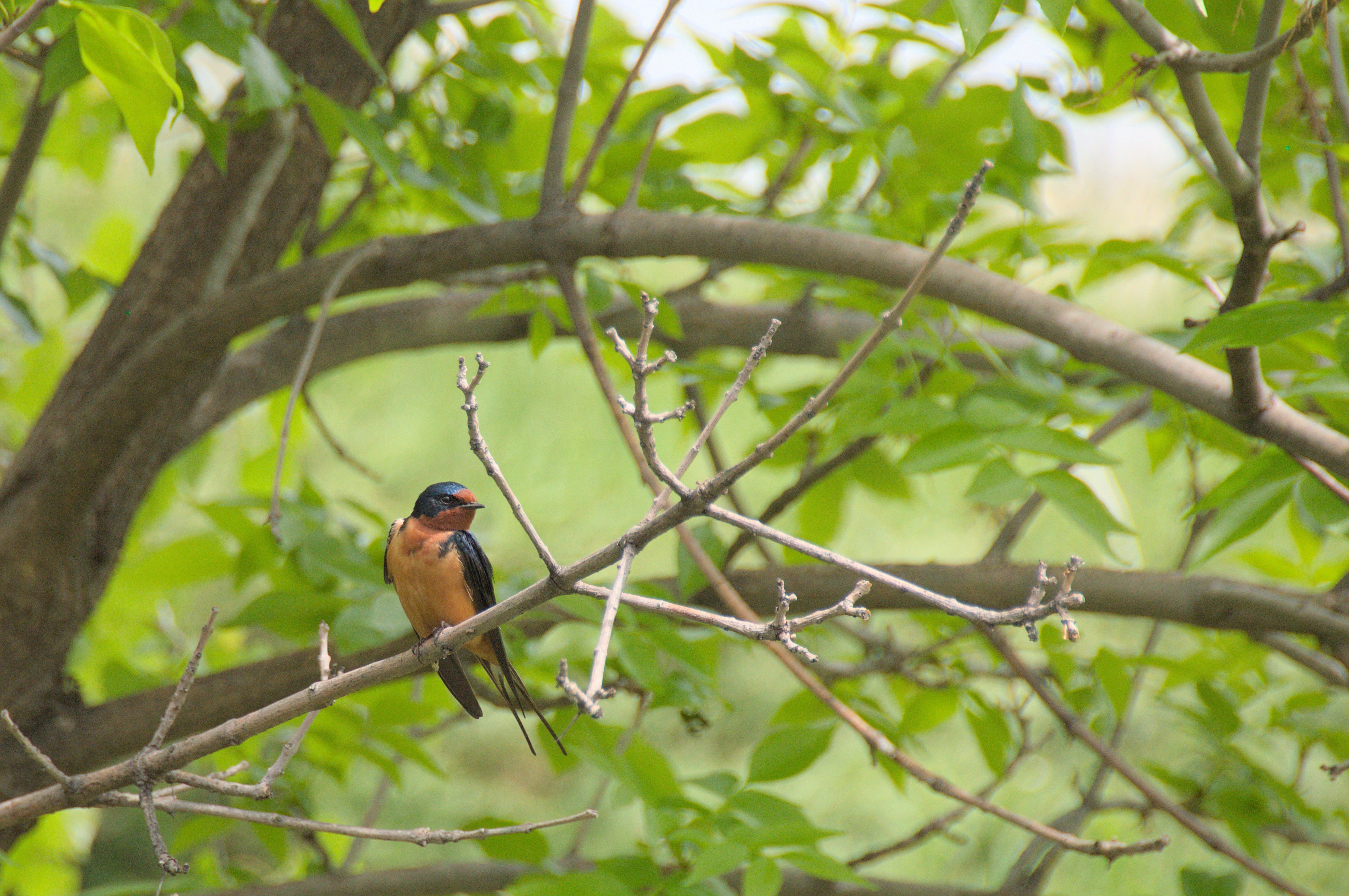
Using the same Barn Swallow location as an example, I know from experience that they perch there if I “come early” and wait standing still for long enough (~15 minutes). So that’s what I did when I went there the other day, standing at the same spot, but using the Tamron 150-600mm instead. This time, I didn’t have to crop, since I pre-framed my picture, knowing their approximate size and that they would be there sooner or later.
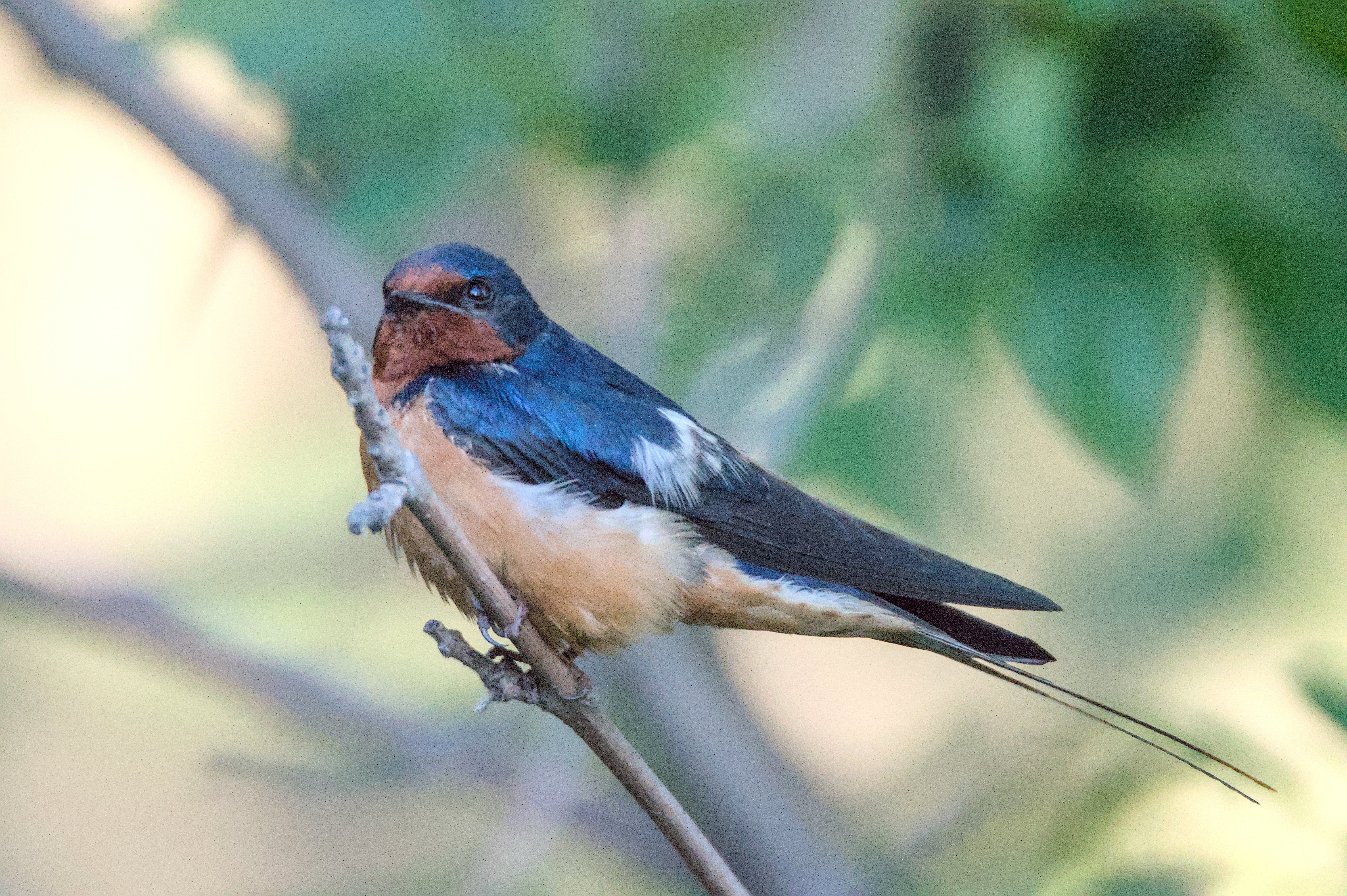
There are situations where you need to crop a bit more, especially for birds that are both small and fast.
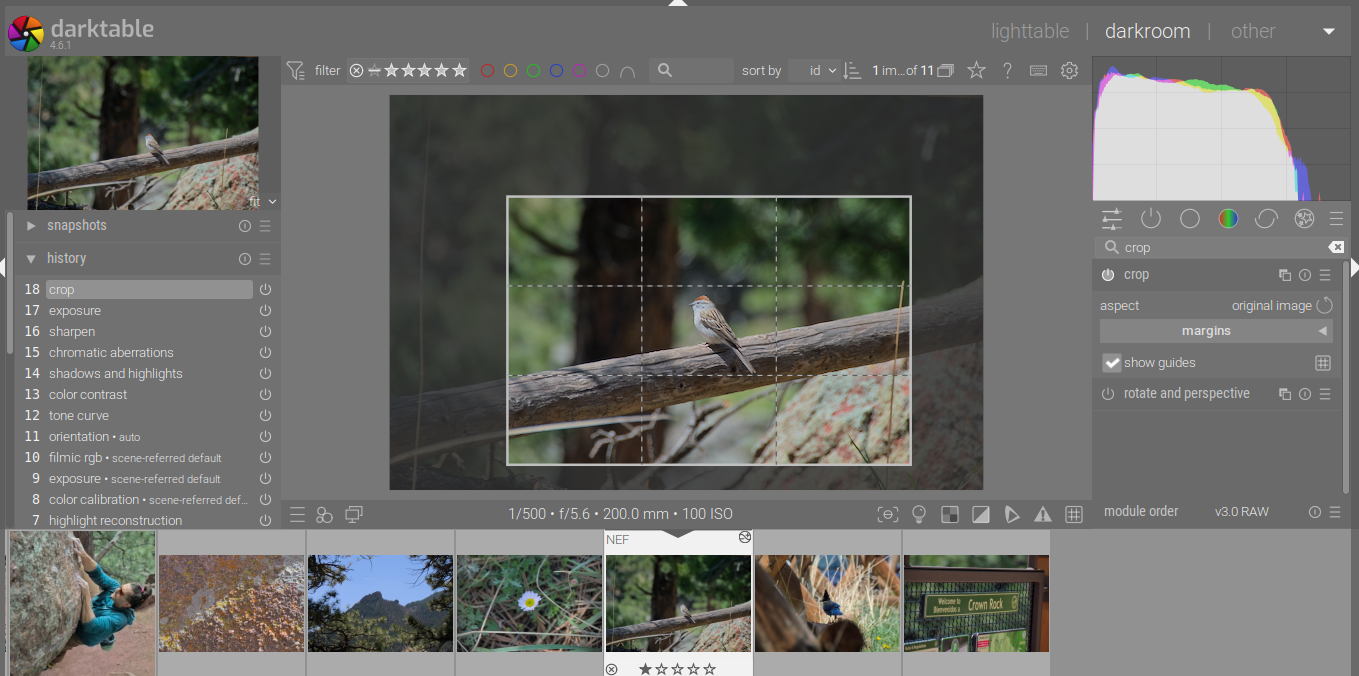
It took me close to 30 minutes to take this photo (D3200 + 18-200mm), since the chipping sparrows were zipping around, so I had to patiently wait for one to be within reach. I took exactly 6 pictures, two steps, lay down on the ground, one shot, two steps, lay down on the ground, one shot, repeat. Until the bird flew away.
I would say 200mm on cropped (300mm full frame equivalent) is when you can start to get good pictures: challenging but doable. 300mm on cropped is fairly nice (450mm equivalent). I don’t think there are crazy improvements from 450mm–600mm, since 450mm is already nice for larger birds like jays or blackbirds, and ~500mm may be too short to reliably capture some smaller songbirds. 800mm or so is the longest I’ve tried and IMO it would be very challenging to have good enough technique to pull it off beyond that.
Of course, a person with a high-resolution, low-light beast will be able to crop more aggressively than I do. Especially if they just post their pictures online, where basically anything at 2MP or so will do.
I appreciate you taking the time to write out a detailed reply! It certainly helped me understand the process. I have young kids, so I don’t have the time right now to stake out a spot I know interesting birds will visit, but perhaps they will be more interested when they’re older.
As for gear itself, my old D40 and newer D5300 were just as capable of good photos as the cameras I’ve rotated through in the past two years (buying used and selling): a Z6II, a X-H2s, an A7III, and A9II, and an OM-1. In terms of ability to be focused on the confirmes focus point, both the OM-1 and Z6II are worse in this regard - especially if you’re trying to take advantage of things like human face/eye detection. The newer, and especially FF, bodies do let me push ISO way higher than I would in the past though. As you’ve found, your D3200 can take great photos. If you start thinking about upgrading, be sure to dig into where your improvements will (and won’t) be.
As someone just getting into photographing birds, I really appreciate this write up!
My pleasure. I’m looking forward to seeing your posts if you ever feel like sharing. If you have any questions, you can ask them here and I’d be happy to help!
Wow, great shot! I love it! Such cool bird action

